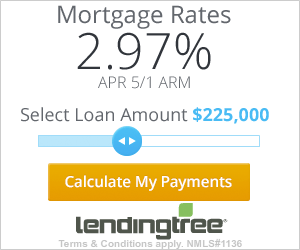This article may include partner links. If you click, visit or buy from these links, we will receive a fee or products from the companies mentioned in this post. Please read our disclosure policy for more details.
“We don’t know the probabilities of future events. Still, you have to take action, and so you do it on gut feeling. That’s the world we live in.” – Robert J. Shiller
I spoke to a young couple yesterday about whether or not this was a good time to buy and whether timing the Real Estate market is even possible. As we went on with our conversation, I walked them through these 5 things to consider before jumping into homeownership to make sure they have all the info they need and if their current situation even necessitated making a move from where they're at.
Here's what we talked about:
MOTIVATION
First is finding your why!
Why do you want to buy? What’s your why? Is it because you’re feeling left out and you think all your friends and family are in houses, so why not you? Is it because you’re seeing the news and feeling it may be time to buy? Is it because you have money sitting around doing nothing (by this I mean it’s sitting in a bank earning next to nothing) and you feel it’s better to plunk it into a house that will eventually appreciate and that you can also enjoy in the meantime? Is it because a realtor or sale professional is pressuring you? (Might be the worst reason of all).
Whatever your why is? It’s important to you.
So no matter what anyone else thinks, if you or both you and your partner agree or disagree, that’s good enough to determine whether any time is good to buy or not.
BUDGET
Now that you’ve figured out your why, next thing is the how much?
 Being in one of the most, if not the most expensive state in the whole United States, it helps to figure out how much house you can afford.
Being in one of the most, if not the most expensive state in the whole United States, it helps to figure out how much house you can afford.
-
Here’s a great link to realtor.com’s ‘Affordability Calculator’
Affordability is the greatest obstacle to homeownership according to the California Association of Realtors 2nd quarter 2017 data , it’s reported that only 32% of Californians are able to afford a $496K (median priced home) in the State.
See report below;
California housing affordability inches up as seasonal price declines and income growth offset higher interest rates
- Thirty-two percent of California households could afford to purchase the $496,620 median-priced home in the first quarter of 2017, up from 31 percent in fourth-quarter 2016 but down from 34 percent in first-quarter 2016.
- A minimum annual income of $102,050 was needed to make monthly payments of $2,550, including principal, interest, and taxes on a 30-year fixed-rate mortgage at a 4.36 percent interest rate.
- Forty percent of home buyers were able to purchase the $414,940 median-priced condo or townhome. An annual income of $85,270 was required to make a monthly payment of $2,130.
Due to these limitations and the growing population that continue to come to the State, there are numerous down payment assistance programs that are available, most notable ones are through the California Housing and Finance Agency or CalHFA ; the Golden State Finance Authority or GSFA , and the National Homebuyers Fund NHF . These are the more prominent ones but a more comprehensive list is provided by HUD or the Housing and Urban Development site.
If you are working with a local realtor, he or she can give you more details on these State sponsored and even local grants through Realtor Association boards and their Housing Affordability Fund programs page for more details.
With these sobering numbers and the prospect of rising affordability issues, it helps to figure out, in spite of your motivation, what programs you may be entitled to, how they can help realize homeownership and also assess your plans of being able to afford the mortgage and keep the home long term.
LOCATION
Now that you’ve considered your why and your budget, being able to determine the best available location for the money will be an integral part of meeting your homeownership needs.
Where you buy ultimately impacts the future value of your home.
Are you looking for a good school district since you have school age children and you want the best available school district for them? Head on over to the few sites that can help;
-
California Charter School Directory
-
California School Directory
-
School and Housing Resource page
Are you career minded professionals looking to take advantage of homeownership but are open to laying down roots in suburban areas? Or are you keen on staying close to your work location to save on time and hassle of commuting? Whatever your reasons are, the location you pick will definitely drive how much and how far your purchase dollars will go.
Sites like realtor.com, Zillow, Redfin and your friendly neighborhood Realtors can definitely give you the heads up and even help show the available inventory in and around the area you decide to buy in.
In my opinion, the more frenzied you are into buying, the more rushed and pressured you are into buying unnecessarily. My suggestion is to take your time, be open-minded, stick to your budget, and be open enough to walk away; In that way, you can save money and sanity when it comes time to finally settling with ‘the one’ property that speaks to you.
TYPE OF PROPERTY
Are you keen on a single-family home with land and room to grow? Or are you more interested in a property like Condos or Townhomes that are less maintenance?
Your lifestyle will ultimately dictate what your needs are and what type of property you should buy.
The two main differences are that the single-family detached home is your own plot of land with a house in it. The main benefit is that you own the land and can do anything (within legal housing codes) within the four corners of your property. The downside is, since you own it, you are responsible for the upkeep that includes lawn gardening, trash disposal, and curb maintenance; some zoning laws have very aggressive policies on compelling homeowners to maintain their sidewalks and front yards so it’s best to determine what they are before deciding to buy into those neighborhoods.
-
Great resource of Property Types from Redfin
The condo and townhome type homes are setup like communities where unit owners are designated as 1 part owner of however large the number of homes there are in the given community or development. And as such, being only a part owner, you are bound to rules and restrictions that govern the whole community. These may include paint, parking, easement and other restrictions that affect the total appearance, utility and in some cases marketability of the whole community.
The one good thing though is that upkeep and maintenance for the whole community is managed by the HOA (homeowner association) and you are only required to contribute a monthly due for this privilege. Apart from that, you still enjoy the benefits of homeownership and use of your particular home as would an owner of a single-family detached homeowner would.
FUTURE PLANS
Are you buying your first home, a step up home, or your forever home?
Funny since I sometimes hear that phrase and have to hold my tongue in commenting; since there is no such thing as a ‘forever’ home J, we all eventually move on and eventually leave the property to our heirs or wherever else we decide to bequeath them.
At any rate, my general advice is, it’s a good idea to buy a townhome first when considering a first home; generally since you have the look and feel of owning a single detached structure. From there you can readily determine if you’re ready to take on upkeep and maintenance of a detached home when the time comes you need to upgrade.
If you’re relocating for employment, and you think you’re only going to stay for a limited time, it’s also best to rent for 6 months to get a feel for the community you eventually want to buy in. But even in this scenario, figuring out if a maintenance free home is best will boil down to your preference and lifestyle choices.
If you’re laying down roots, have kids and see yourself not moving in 10 or more years; then I definitely recommend buying a single detached home that is within your budget, with great schools, and easy enough access to public transportation if needed. Those three factors alone will be enough to ensure yourself of good appreciation down the line if and when you decide to sell and move again.
IN CONCLUSION
Homeownership is one of the major factors that contribute to wealth building, and according to a recent article by Ben Hecht of Living Cities, the benefits far outweigh any disadvantage when considered as part of a long-term financial plan. Partly because shelter is one of the major needs in our society next to food and clothing, and it’s the only product that we buy that more often than not, appreciates more than it depreciates.
-
“Homeownership has long been a central part of this equation. In 2015, the average net worth of a homeowner in was $195,400, compared to just $5,400 for a renter, according to the Federal Reserve.”
Whatever your plans are, being able to see the different property types and how it fits your lifestyle and short or long-term goals, will give you an edge when it comes to making your next move, up or down.
By making sure you have the best available information as you start your home buying process, will certainly give you the best opportunity to purchase the right home that fits your needs, wants and economic return for you and your family down the road.
Taking these benefits into consideration, owning your own home will definitely send you on your way to wealth and a good financial return in the future.
Do you have other insights about home ownership? Do you have other tips that can benefit home buyers? Please do share by leaving a comment here or emailing us at thedebtfreejourney@gmail.com.
Until the next post.
Peace and Blessings to you All.






Leave a Reply